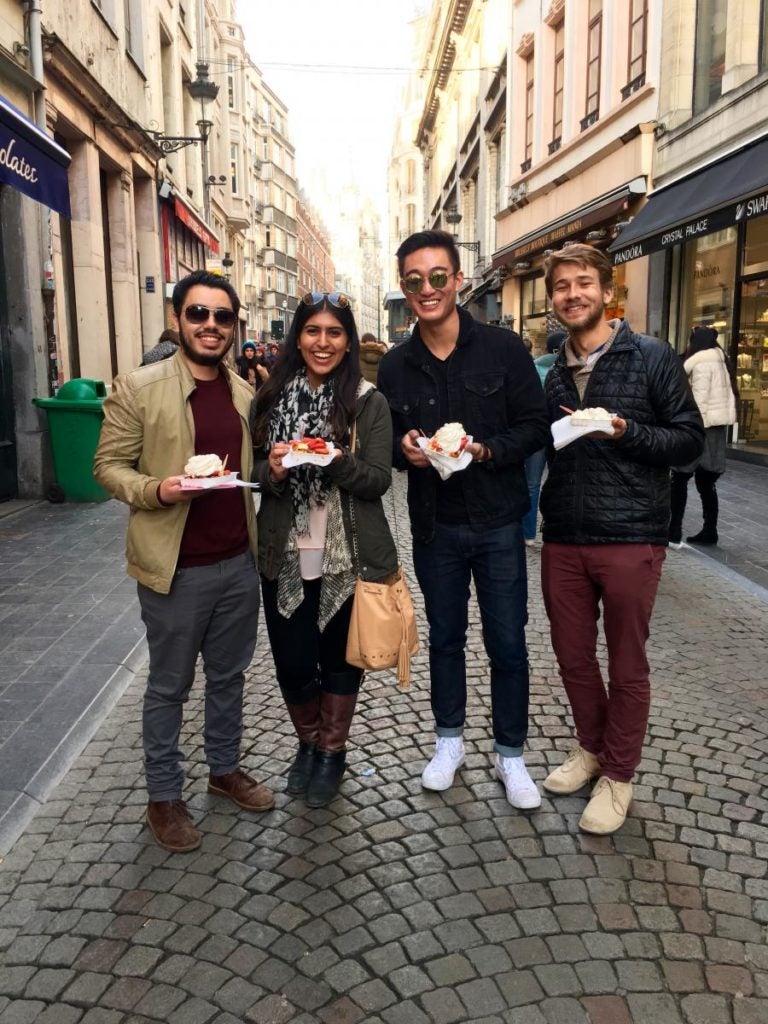Nationality
Taking your national identity abroad
For American Students:

In the United States, most people typically identify as more than just American. Terms we typically hear are Irish-American, Polish-American, Nigerian-American, Chinese-American, etc. When we leave the United States, however, we turn into unofficial ambassadors of America and its culture, and of Georgetown University. You will quickly notice that American culture (music, art, literature, cinema, etc) has spread throughout the globe. Even though you might not identify as American first, people in your host country typically will see you as American before anything else and will have questions about the United States for you.
Your American identity will likely become more obvious to you in an international context. You may also run into stereotypes of Americans abroad. These opinions typically come from political views or pop culture, and may or may not be a reflection of your attitudes or behavior.
For International Students:
If you are an international student, congratulations on your choice to study abroad once again, this time outside the United States! In consultation with your OGE Advisor and International Student Advisor, you will want to research ways in which your immigration status may impact your ability to study abroad and choice of program location.
Through study abroad, you will likely encounter intersecting identities as an international student from an American university. Do you first identify with your home country, or as a student at an American university? Depending on your program type, you may be in frequent contact with a group of American students studying on a cohort-based program, or you may find yourself in a more independent situation if you directly matriculate at a foreign university with none or few Georgetown students. Reflect on the type of study abroad experience you want to have and how your nationality may be perceived in such host country.
Think about:
- What do I know about how my host country perceives my nationality?
- What aspects of my nationality am I proud of that I would like to share with my host community?
- How have aspects of my national identity been historically marginalized or treated in the host country?
Before You Go:
- Research laws, customs, and attitudes your host country may have pertaining to your national identity.
- We encourage you to engage in self-reflection about how your national origins will impact your study abroad experience.
